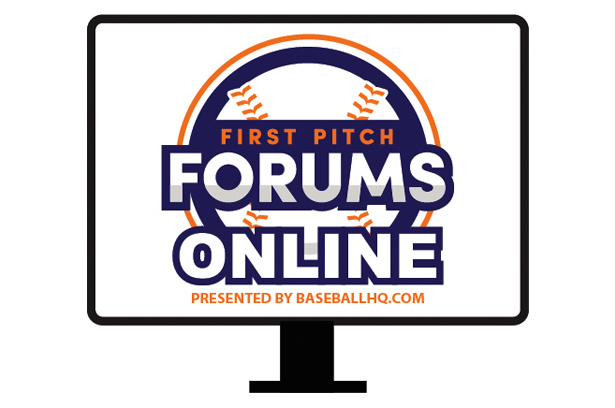
(*) FANALYTICS: Chaos versus control
In his USA Today column on Tuesday, Steve Gardner wrote about several events that caused mass confusion in the fantasy baseball world this week. He wrote about the fallout from the Biogenesis scandal, the uncertainty of the non-waiver trading deadline and FAAB rules that further muddy the waters. He described how the confluence of these events created a free-for-all environment in our game.
But then he made a comment that stopped me dead in my tracks:
"...that's what makes this game of ours so much fun. Deep down, fantasy owners love chaos."
Is this really true?
I always thought that our fascination with fantasy baseball was originally driven by a need to regain some sense of control over the real game. Back in the 1980s, free agency was turning over our home team rosters each year. With our favorite players changing uniforms as often as they were doing their laundry, fantasy gave us a new loyalty.
We drafted hybrid teams to prove we had better management skills. But more than that, owning these teams gave back some control. The rules of the games provided some order. In fact, the only thing that remained out of our control was how the players would ultimately perform.
Has all that changed today?
If you look at how the rules of fantasy, or Rotisserie, have evolved over time, perhaps things are different now. I'm not sure it's a transition from order to chaos; perhaps a better dichotomy is a move from more control to more randomness.
As described in the 1984 book, Rotisserie League Baseball, the original game used an auction draft. This mode of roster-stocking gave all owners an equal chance at every player. This increased control and also provided a sense of greater parity.
Over time, the snake draft became a more preferred method, at least in part due to its ease of automation. But as much as snaking provides its own challenge, it also offers owners less control over building their teams. The only players you can draft are those left to you by the other owners. It's more random.
The original game used eight statistical categories; we moved to 10 categories in the late 1990s. While 5x5 has become the de facto standard, it has come at a price. The more categories, the more moving parts to manage, the less control.
You might argue that more categories means more control. I'd counter by challenging you to orchestrate a deal for a pitcher by trading away stolen bases without impacting your standing in runs. You could do that in the 4x4 game; not as easy in 5x5.
The original game awarded in-season free agents via a snake draft; teams were ranked in reverse order of the standings. While this had the same constraints as snaking on draft day, the one thing it did promote was standings parity. The move to a free agent acquisition budget would have been an improvement had it used an open-bidding system. The closed-bid standard makes the process far more random.
The original game permitted owners to make trades to fill holes and improve their roster. In many leagues today—especially those with high stakes—trading is forbidden. It's a concession to prevent strong personalities from controlling the marketplace. However, placing trade limits closes off an important method of roster management. Again, it's another rule that impedes control.
Granted, there are some rules today that do provide more control than in the past. Our Founding Fathers severely limited access to free agents. A player had to be injured, demoted or dead to be replaced. At least now our access to the free agent pool tends to be more liberal. And that's a good thing because the environment in which fantasy baseball lives today is far more chaotic.
As MLB teams attempt to protect their skyrocketing investments, players hit the disabled list at the slightest paper cut and stay there until the scab has fallen off and the skin has returned to its natural color. That creates a free-flow of talent up and down through the minors, giving in-season opportunities to players who were nowhere near a draft list back in March. And PEDs, well... that has changed the entire prognosticating process. Out with the advanced statistical models; in with blindfolded dart-throwing.
So it does appear that the game has evolved into one that yields more random results than in the past. Would I call it "chaos?"
I might.
But would I conclude that "fantasy owners love chaos?" Steve wrote:
"The reason we love draft day is that rush of adrenaline we get from having to think on our feet.... We must analyze the situation, evaluate our options and react quickly.... So if draft day is the best day on the calendar, what's the second-best day? The trade deadline—for exactly the same reasons."
I do think there is a certain thrill to it, like riding a roller-coaster or playing a video game. Gambling is all about the adrenaline rush which I suppose is why daily games have become so popular.
And in some bizarre sense, chaos does level the playing field. When nobody has control, anyone has a chance to win.
To be honest, that's not the game I cut my teeth on; I have always approached the hobby as a more cerebral pursuit. But that's probably just my control-freak persona seeping out.
And control freaks loathe chaos.





-300x200.png)


